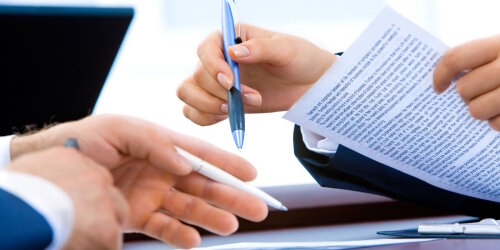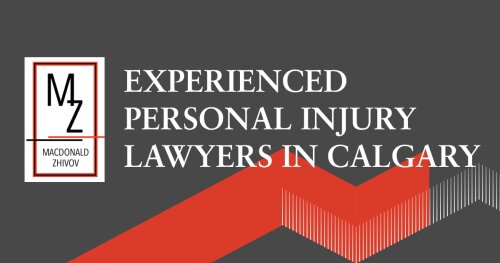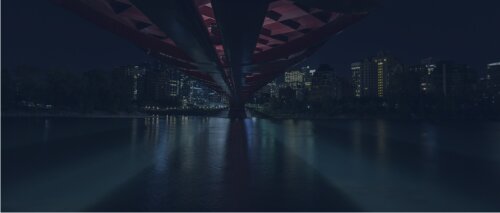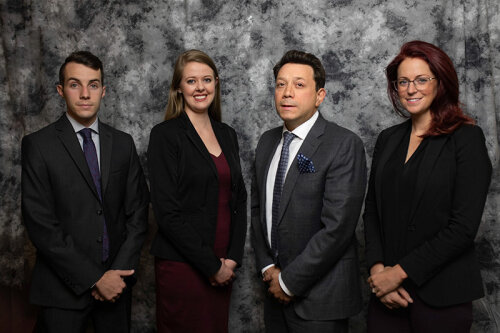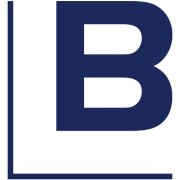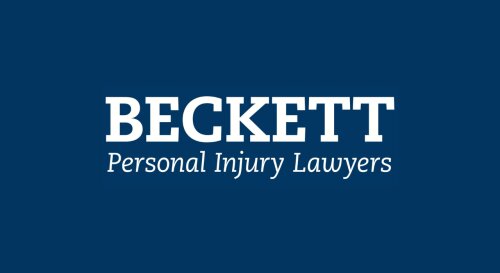Best Premises Liability Lawyers in Canada
Share your needs with us, get contacted by law firms.
Free. Takes 2 min.
Or refine your search by selecting a city:
List of the best lawyers in Canada
About Premises Liability Law in Canada
Premises liability refers to the legal responsibility of property owners to ensure the safety of people who enter their premises. In Canada, this principle is grounded in the Occupiers' Liability Act which obliges occupiers to maintain a safe environment. The law applies to a range of properties, including private residences, commercial buildings, and public spaces. Liabilities arise when visitors, tenants, customers, or any other individuals suffer injuries due to the occupier's negligence, such as slips, trips, and falls or exposure to hazardous conditions.
Why You May Need a Lawyer
Legal assistance in premises liability matters is often necessary due to the complexity involved in proving negligence and liability. Common situations that might require a lawyer include:
- Slip and fall accidents on icy sidewalks or wet floors.
- Injuries from structural defects like broken stairs or handrails.
- Accidents involving inadequate security leading to third-party assaults.
- Dog bites occurring on someone else's property.
- Exposure to toxic substances or unsafe conditions.
Lawyers can help evaluate the situation, gather evidence, negotiate settlements, and represent you in court if necessary.
Local Laws Overview
In Canada, premises liability is primarily governed by provincial legislation, such as the Occupiers' Liability Act in provinces like Ontario and British Columbia. Key legal aspects include:
- The duty of care owed by property owners and occupiers to visitors.
- The requirement to take reasonable steps to safeguard visitors from harm.
- Exemptions and limitations, such as liability waivers or visitor negligence.
- Special considerations for trespassers and children who may not appreciate risks fully.
Courts often consider factors like foreseeability of the harm, the age and ability of the injured person, and the use of warning signs when evaluating cases.
Frequently Asked Questions
What is premises liability?
Premises liability refers to the legal responsibility of property owners for injuries occurring on their property due to unsafe conditions.
Who can be held liable in a premises liability case?
Responsibility can fall on property owners, leaseholders, tenants, or anyone in control of the property at the time of an accident.
What must be proven in a premises liability case?
The plaintiff must demonstrate duty of care, breach of said duty, causation, and resulting damages.
Are businesses more liable than homeowners?
All property owners have similar fundamental responsibilities, although businesses might face stricter scrutiny due to higher public footfall.
Is there a time limit for filing a premises liability claim?
Yes, limitation periods vary by province, often ranging from two to three years from the incident date.
How are damages calculated in premises liability cases?
Damages typically include medical expenses, loss of income, and pain and suffering, and are assessed based on the specific case details.
Does premises liability cover injuries at both residential and commercial properties?
Yes, premises liability applies to any type of property, including residential, commercial, and public spaces.
Can you sue if you are partially at fault?
Possibly. Under the principle of contributory negligence, compensation may be reduced based on the plaintiff's degree of fault.
Does premises liability cover trespassers?
In general, property owners owe a lesser duty of care to trespassers, but they must still avoid willful harm or negligence.
Do waivers affect premises liability claims?
Liability waivers can limit claims, but they must be clearly presented and understood by the party signing to be enforceable.
Additional Resources
For further support and information, consider reaching out to the following:
- The Canadian Bar Association for legal resources and references.
- Province-specific law societies, such as the Law Society of Ontario, for local legal assistance.
- Public legal education organizations that provide information on personal injury rights.
- The Insurance Bureau of Canada for understanding liability insurance related matters.
Next Steps
If you need legal assistance in a premises liability case, consider the following steps:
- Document the incident thoroughly, including photographs, witness statements, and medical reports.
- Consult with a lawyer specializing in premises liability to review your case.
- Understand your legal rights and the process, including potential costs involved in pursuing a claim.
- Consider alternative dispute resolutions or negotiation before proceeding with a court case.
- If necessary, file your claim within the legally prescribed time limits for your province.
Lawzana helps you find the best lawyers and law firms in Canada through a curated and pre-screened list of qualified legal professionals. Our platform offers rankings and detailed profiles of attorneys and law firms, allowing you to compare based on practice areas, including Premises Liability, experience, and client feedback.
Each profile includes a description of the firm's areas of practice, client reviews, team members and partners, year of establishment, spoken languages, office locations, contact information, social media presence, and any published articles or resources. Most firms on our platform speak English and are experienced in both local and international legal matters.
Get a quote from top-rated law firms in Canada — quickly, securely, and without unnecessary hassle.
Disclaimer:
The information provided on this page is for general informational purposes only and does not constitute legal advice. While we strive to ensure the accuracy and relevance of the content, legal information may change over time, and interpretations of the law can vary. You should always consult with a qualified legal professional for advice specific to your situation.
We disclaim all liability for actions taken or not taken based on the content of this page. If you believe any information is incorrect or outdated, please contact us, and we will review and update it where appropriate.
Browse premises liability law firms by city in Canada
Refine your search by selecting a city.




